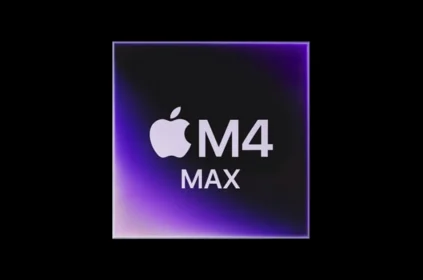A US judge has ruled that Apple cannot continue to monopolise control of payment method on its Apps Store.
The judge, in a ruling, said Apple cannot bar developers from providing to customers alternative payment methods in their apps.
The ruling issued a nationwide order that allows developers to put into their apps “buttons, external links, or other calls to action that direct customers to purchasing mechanisms.”
Judge Yvonne Gonzalez Rogers who gave the ruling struck down some of Apple’s restrictions on how developers can collect payments from users.
The ruling came as part of a lawsuit brought by Epic Games, the creator of Fortnite.
ALSO READ: Apple Agrees To Relax App Store Payment Policy
Epic accused Apple of running its App Store as a monopoly, exercising too much power over what apps are allowed and how they are run.
It took aim at Apple’s in-app purchase policies, under which it charges developers up to 30% commission on profits.
Friday’s ruling strikes down a core part of Apple’s App Store rules, which prohibit developers from telling users about other places they can go to pay the developer directly rather than using Apple’s payment mechanisms.
Judge Yvonne Gonzalez Rogers issued a nationwide order that allows developers to put into their apps “buttons, external links, or other calls to action that direct customers to purchasing mechanisms”.
The ruling also said that Apple cannot ban developers from communicating with customers via contact information that the developers obtained when customers signed up within the app.
Gonzalez Rogers stopped short of granting Epic some of its other wishes, such as forcing Apple to open the iPhone up to third-party app stores.
The judge ruled Epic failed to demonstrate Apple is an illegal monopolist, but did show the smartphone giant engaged in “anticompetitive conduct” under California laws.
“A remedy to eliminate those provisions is appropriate,” the court ruling read.
“This measured remedy will increase competition, increase transparency, increase consumer choice and information while preserving Apple’s iOS ecosystem which has procompetitive justifications.”
Epic made clear on Friday that while key components of the case were ruled in its favor, it does not consider the decision a win, and that it plans to appeal.
“Today’s ruling isn’t a win for developers or for consumers,” chief executive Tim Sweeney said on Twitter.
“Epic is fighting for fair competition among in-app payment methods and app stores for a billion consumers.”
The feud between Apple and Epic Games intensified last August when Epic tried to bypass Apple’s App Store commission by launching its own payment system within its wildly popular game Fortnite.
Apple responded by pulling the Fortnite game from the App Store.
Epic Games sued, and Friday’s ruling comes after a three-week trial in May before the US district court for the northern district of California. The trial saw Epic Games call Sweeney to testify as well as the Apple chief executive, Tim Cook.
Cook in his highly anticipated testimony justified the way the App Store is run by appealing to user safety and privacy, arguing that Apple must thoroughly vet which apps are allowed in its platform.
The App Store is a major contributor to the profit growth that has helped give Apple its current market value of nearly $2.5tn, but how much the sector makes remained a heated point of contention during the trial.
Apple shares moved down about 3.3% on news of the decision. Shares of Google owner Alphabet, which operates an app store for Android smartphones, reversed an earlier gain and were last down nearly 2%.
Analysts at Wedbush Securities, a US investment firm, said the decision could cost Apple $11bn in revenue over the next two years.
Apple said in a statement: “As the court recognized, success is not illegal.
Apple faces rigorous competition in every segment in which we do business, and we believe customers and developers choose us because our products and services are the best in the world.”
The orders are similar to a move that Apple made last week to conclude an investigation by the Japan Fair Trade Commission in which Apple said it would allow such “reader” apps like Netflix to provide a link to customers to sign up for a paid account outside of the app, skipping Apple’s commission.
Geoffrey Manne, president of the US-based International Center for Law and Economics, an academic research body, said the ruling was not a resounding victory for Epic given that Apple had won on nine out of 10 counts, but it paved the way for further legal problems for the iPhone maker such as class action lawsuits.
“The language in the ruling is not good for Apple. There are a lot of findings in this case that are going to open the door to further litigation.”
Manne added that the ruling could have been much worse for Apple. It left untouched the 30% cut and did not require Apple to allow alternative payment methods in its App Store.
… we have a small favour to ask. Millions are turning to the Guardian for open, independent, quality news every day, and readers in 180 countries around the world now support us financially.
We believe everyone deserves access to information that’s grounded in science and truth, and analysis rooted in authority and integrity.
That’s why we made a different choice: to keep our reporting open for all readers, regardless of where they live or what they can afford to pay.
This means more people can be better informed, united, and inspired to take meaningful action.
In these perilous times, a truth-seeking global news organisation like the Guardian is essential.
We have no shareholders or billionaire owner, meaning our journalism is free from commercial and political influence – this makes us different.
When it’s never been more important, our independence allows us to fearlessly investigate, challenge and expose those in power.
Culled from The Guardian.com


















 and then
and then